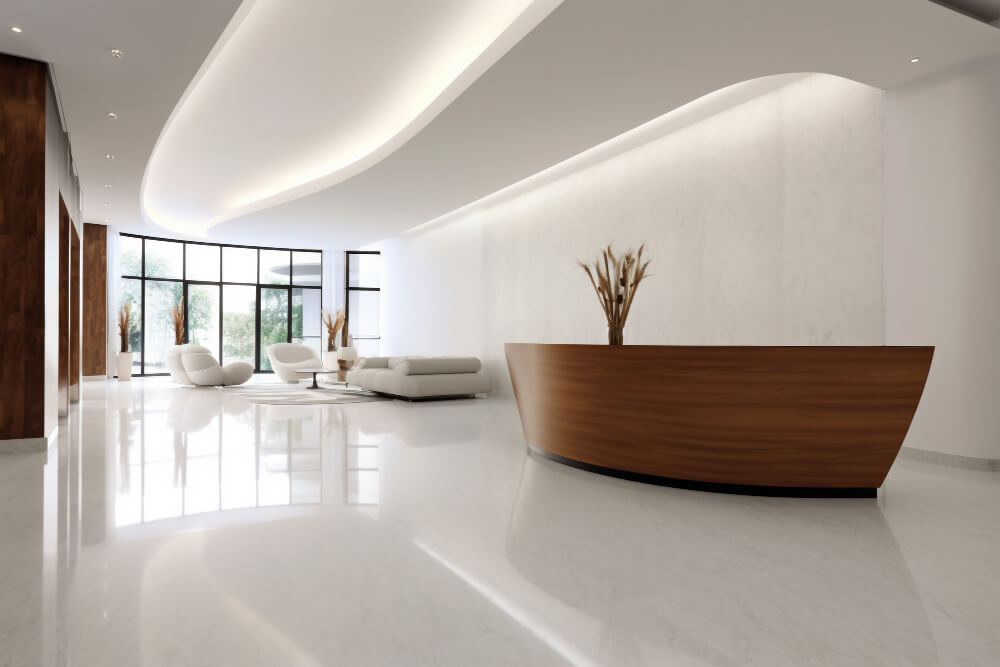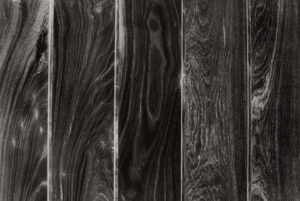When choosing the perfect flooring for your space, it’s crucial to weigh all the options. Vinyl Composition Tile (VCT) and epoxy flooring are two popular choices that offer distinct advantages.
Read on as we compare these two flooring types based on cost, maintenance, and performance to help you make an informed decision.
VCT Tile
VCT (Vinyl Composition Tile) is a popular flooring choice known for its affordability and versatility. It is commonly used in commercial settings due to its resilient nature and wide range of available colors and patterns.
While VCT tile is budget-friendly upfront, it requires regular maintenance to keep it looking its best.
Cost
VCT tile is known for its affordability, making it a favorite for budget-conscious projects. The initial cost is relatively low compared to other flooring options, and the straightforward installation process helps keep labor costs down.
However, long-term costs can add up due to the need for regular maintenance and occasional replacement.
Maintenance
Maintenance is a significant factor when it comes to VCT tile. To keep it looking its best, VCT tile requires regular cleaning, waxing, and polishing.
High-traffic areas can wear down quickly, necessitating frequent maintenance and potential replacement. While the tasks are generally straightforward, they can become cumbersome over time.
Performance
VCT tile offers good performance in many environments, particularly in commercial settings. It provides a resilient surface that handles foot traffic and light impacts well.
Available in various colors and patterns, VCT tile can match any décor. However, its durability is limited compared to epoxy flooring, showing wear and tear more quickly.
Epoxy Flooring
Epoxy flooring is a robust and durable option that excels in a variety of applications, from industrial facilities to residential garage flooring. Known for its seamless and non-porous surface, epoxy flooring offers exceptional resistance to stains, chemicals, and impacts.
Cost
Epoxy flooring tends to have a higher upfront cost due to more expensive materials and the need for skilled installation professionals. Despite the higher initial investment, epoxy flooring offers long-term cost benefits thanks to its superior durability and low maintenance requirements.
Maintenance
Epoxy flooring is known for its minimal maintenance needs. Its stain, spill, and chemical-resistant surface is easy to clean with just a mop and mild detergent.
Unlike VCT tile, epoxy floors do not require waxing or polishing, and their durable surface withstands heavy traffic and impacts without significant wear. This makes epoxy flooring a convenient and hassle-free choice for any space.
Performance
Epoxy flooring excels in performance across a wide range of applications. Its seamless and non-porous surface is highly resistant to damage from chemicals, abrasions, and impacts.
In addition, epoxy floor is waterproof, making it suitable for environments where moisture is a concern. Its superior durability ensures a long lifespan, even in demanding settings such as industrial facilities, garages, and commercial spaces. With epoxy flooring, you get a robust, long-lasting solution that maintains its pristine appearance over time.
Conclusion
While VCT tile offers affordability and customization, epoxy flooring stands out for its long-term cost efficiency, minimal maintenance, and superior performance.
For those prioritizing durability and ease of care, epoxy flooring is the clear winner, making it a worthwhile investment for both commercial and residential spaces. To learn more about the benefits of epoxy flooring, feel free to check out apexepoxyllc.com for additional details.


